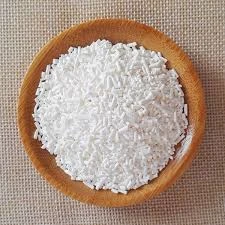
chelating agent in food
Chelating Agents in Food Importance and Functionality
Chelating agents, also known as chelators, are substances that can form multiple bonds with a single metal ion, effectively grabbing it and preventing it from participating in chemical reactions. Their application in the food industry is crucial for ensuring food safety, enhancing nutritional value, and maintaining product stability. In this article, we will explore the role of chelating agents in food, their benefits, and the potential concerns associated with their use.
Understanding Chelating Agents
Chelating agents are often organic compounds that have the ability to bind with metals. They can be broadly categorized into natural and synthetic chelators. Natural chelators include substances like citric acid, ascorbic acid (vitamin C), and tartaric acid, which are commonly found in fruits and vegetables. Synthetic chelators, on the other hand, are manufactured for specific applications, such as ethylenediaminetetraacetic acid (EDTA) and its derivatives.
Role of Chelating Agents in Food Preservation
One of the primary functions of chelating agents in food is to act as preservatives. They stabilize metal ions that can catalyze oxidative reactions, leading to spoilage and degradation of food quality. For example, in the presence of iron or copper, fats and oils can oxidize, resulting in rancidity and off-flavors. By binding these metals, chelators slow down the oxidation process, thereby extending shelf life and maintaining flavor integrity.
Enhancing Nutritional Value
Chelating agents also play a significant role in enhancing the nutritional value of food. Certain minerals, such as iron, calcium, and zinc, are vital for human health, but their bioavailability can be limited by interactions with other components in food. Chelators can improve the absorption of these minerals by forming soluble complexes that are more readily absorbed in the gastrointestinal tract. This is particularly beneficial in fortified foods and dietary supplements aimed at addressing nutrient deficiencies in populations that may struggle to obtain adequate nutrition.
chelating agent in food

Applications in Food Processing
In the food processing industry, chelating agents are used to prevent discoloration and maintain the visual appeal of products. For instance, the addition of citric acid to canned fruits helps to prevent browning caused by oxidation. Similarly, in processed seafood, chelators can be used to prevent the formation of off-flavors and discoloration, ensuring that products maintain their freshness and quality during storage and distribution.
Safety and Regulatory Considerations
While the benefits of chelating agents in food are substantial, there are also safety concerns that need to be addressed. Some synthetic chelators, like EDTA, have been scrutinized for potential health risks when consumed in excessive amounts. Regulatory bodies, such as the FDA and EFSA, have established acceptable daily intake levels for these substances, ensuring that their use in food does not pose a risk to human health.
Moreover, the environmental impact of synthetic chelators is an area of ongoing research. The persistence of these substances in the environment raises questions about their potential effects on ecosystems. As a result, there is a growing emphasis on developing biodegradable and eco-friendly alternatives to synthetic chelators.
Conclusion
Chelating agents serve a vital function in the food industry, contributing not only to food preservation and safety but also enhancing nutritional value and product quality. While their applications are broad and beneficial, it is essential to continue monitoring their safety and environmental impact. As consumers become more health-conscious and eco-aware, the food industry must adapt by utilizing safe and sustainable practices in the use of chelating agents. Ultimately, the effective application of these substances will support the development of high-quality food products that meet consumer expectations while ensuring safety and sustainability.
-
Pure Sodium Dichloroisocyanurate Dihydrate | Powerful DisinfectantNewsAug.29,2025
-
Industrial Chemicals: Quality & Purity for Every IndustryNewsAug.28,2025
-
Nitrile Rubber Honoring Strict Production StandardsNewsAug.22,2025
-
Aspartame Ingredients Honoring Food Safety ValuesNewsAug.22,2025
-
Fertilizer for Balanced Plant NutritionNewsAug.22,2025
-
Cyanide Gold Processing with High Purity AdditivesNewsAug.22,2025
-
Formic Acid in Textile Dyeing ApplicationsNewsAug.22,2025
Hebei Tenger Chemical Technology Co., Ltd. focuses on the chemical industry and is committed to the export service of chemical raw materials.
-

view more DiethanolisopropanolamineIn the ever-growing field of chemical solutions, diethanolisopropanolamine (DEIPA) stands out as a versatile and important compound. Due to its unique chemical structure and properties, DEIPA is of interest to various industries including construction, personal care, and agriculture. -

view more TriisopropanolamineTriisopropanolamine (TIPA) alkanol amine substance, is a kind of alcohol amine compound with amino and alcohol hydroxyl, and because of its molecules contains both amino and hydroxyl. -

view more Tetramethyl Thiuram DisulfideTetramethyl thiuram disulfide, also known as TMTD, is a white to light-yellow powder with a distinct sulfur-like odor. It is soluble in organic solvents such as benzene, acetone, and ethyl acetate, making it highly versatile for use in different formulations. TMTD is known for its excellent vulcanization acceleration properties, which makes it a key ingredient in the production of rubber products. Additionally, it acts as an effective fungicide and bactericide, making it valuable in agricultural applications. Its high purity and stability ensure consistent performance, making it a preferred choice for manufacturers across various industries.





